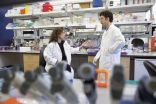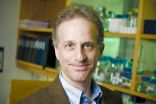Happy-go-lucky CEOs score better returns
2014-12-11
(Press-News.org) A CEO's natural sunny disposition can have an impact on the way the market reacts to announcements of company earnings, according to research from the University of British Columbia's Sauder School of Business.
The study shows that leaders' inclinations to express themselves with optimism carries over into their tone when disclosing company performance - a tendency that can create an uptick in stock price.
"Ours is the first study to look at the effect of how managers naturally convey themselves," says Sauder Assistant Professor Jenny Zhang, who co-authored the paper. "To do this we tracked the way CEOs and CFOs communicate earnings across their leadership roles at multiple firms to decipher their overall communication style."
Zhang and her colleagues examined transcripts of earnings reports delivered by managers in conference calls. They tabulated the frequency of positive and negative words used and contrasted the information with corporate performance and resulting market activity.
To weed out instances where positive language was used strategically, they controlled for earnings announcements associated with such things as equity offerings, and mergers and acquisitions.
Their findings reveal that managers whose language displays an optimistic state of mind are more likely to have a positive influence on their firm's position in the market.
The researchers also looked at who tends to be more optimistic, finding that CEOs are more positive than CFOs. Those who began their careers in a recession use less optimistic language. Men tend to convey themselves more positively, as do managers involved with charities.
"Investors should be aware that there are human factors at play when they're listening to reports on firm performance," says Zhang. "We tend to think managers are being strategic in their delivery, but sometimes they just can't help but be human - for better or worse."
Background
The study, The effect of manager-specific optimism on the tone of earnings conference calls, is forthcoming in print in Review of Accounting Studies, and is co-authored by Angela K. Davis of the University of Oregon and Weili Ge and Dawn Matsumoto of the University of Washington.
The researchers sampled managers who had worked for at least two different firms for at least a year each, and compared the language they used while reporting earnings at different firms, for multiple quarters, while also comparing the language used by other managers at the same firms before and after their time on the job. Their sample included 121 CEOs and CFOs, and involved 2,098 firm-quarters at 225 firms.
INFORMATION:
ELSE PRESS RELEASES FROM THIS DATE:
2014-12-11
Senescent cells have a bad-guy reputation when it comes to aging. While cellular senescence - a process whereby cells permanently lose the ability to divide when they are stressed - suppresses cancer by halting the growth of premalignant cells, it is also suspected of driving the aging process. Senescent cells, which accumulate over time, release a continual cascade of inflammatory cytokines, chemokines, growth factors and proteases. It is a process that sets up the surrounding tissue for a host of maladies including arthritis, atherosclerosis and late life cancer. But ...
2014-12-11
The ascetic and moralizing movements that spawned the world's major religious traditions--Buddhism, Islam, Judaism, Hinduism, and Christianity--all arose around the same time in three different regions, and researchers reporting in the Cell Press journal Current Biology on December 11 have now devised a statistical model based on history and human psychology that helps to explain why. The emergence of world religions, they say, was triggered by the rising standards of living in the great civilizations of Eurasia.
"One implication is that world religions and secular spiritualities ...
2014-12-11
EMBARGOED for release Thursday, Dec. 11, 2014, at 12 p.m. ET
HOUSTON - (Dec. 11, 2014) - The ancient Japanese art of origami is based on the idea that nearly any design - a crane, an insect, a samurai warrior - can be made by taking the same blank sheet of paper and folding it in different ways.
The human body faces a similar problem. The genome inside every cell of the body is identical, but the body needs each cell to be different -an immune cell fights off infection; a cone cell helps the eye detect light; the heart's myocytes must beat endlessly.
Appearing online ...
2014-12-11
Clinical trials to test the new drugs in patients should begin as early as 2015.
Existing drugs target faulty versions of a protein called BRAF which drives about half of all melanomas, but while initially very effective, the cancers almost always become resistant to treatment within a year.
The new drugs - called panRAF inhibitors - could be effective in patients with melanoma who have developed resistance to BRAF inhibitors.
The new study was funded by the Wellcome Trust and Cancer Research UK, and jointly led by scientists at The Institute of Cancer Research, ...
2014-12-11
Scientists at the University of Southampton have found that the precise shape of an antibody makes a big difference to how it can stimulate the body's immune system to fight cancer, paving the way for much more effective treatments.
The latest types of treatment for cancer are designed to switch on the immune system, allowing the patient's own immune cells to attack and kill cancerous cells, when normally the immune cells would lie dormant.
In a study, funded by Cancer Research UK and published in the journal Cancer Cell, the Southampton team have found that a particular ...
2014-12-11
PHILADELPHIA - (Dec. 11, 2014) - A team of scientists, led by researchers at The Wistar Institute, has found that an infection with herpes simplex virus 1 (HSV-1) causes rearrangements in telomeres, small stretches of DNA that serve as protective ends to chromosomes. The findings, which will be published in the Dec. 24 edition of the journal Cell Reports, show that this manipulation of telomeres may explain how viruses like herpes are able to successfully replicate while also revealing more about the protective role that telomeres play against other viruses.
"We know ...
2014-12-11
The saga of the Osedax "bone-eating" worms began 12 years ago, with the first discovery of these deep-sea creatures that feast on the bones of dead animals. The Osedax story grew even stranger when researchers found that the large female worms contained harems of tiny dwarf males.
In a new study published in the Dec. 11 issue of Current Biology, marine biologist Greg Rouse at Scripps Institution of Oceanography at UC San Diego and his collaborators reported a new twist to the Osedax story, revealing an evolutionary oddity unlike any other in the animal kingdom. Rouse's ...
2014-12-11
HOUSTON -- (Dec. 11, 2014) -- In a triumph for cell biology, researchers have assembled the first high-resolution, 3-D maps of entire folded genomes and found a structural basis for gene regulation -- a kind of "genomic origami" that allows the same genome to produce different types of cells. The research appears online today in Cell.
A central goal of the five-year project, which was carried out at Baylor College of Medicine, Rice University, the Broad Institute and Harvard University, was to identify the loops in the human genome. Loops form when two bits of DNA that ...
2014-12-11
BUFFALO, N.Y. -- Some drugs used to treat diabetes mimic the behavior of a hormone that a University at Buffalo psychologist has learned controls fluid intake in subjects. The finding creates new awareness for diabetics who, by the nature of their disease, are already at risk for dehydration.
Derek Daniels' paper "Endogenous Glucagon-Like Peptide-1 Reduces Drinking Behavior and Is Differentially Engaged by Water and Food Intakes in Rats," co-authored with UB psychology graduate students Naomi J. McKay and Daniela L. Galante, appears in this month's edition of the Journal ...
2014-12-11
London, United Kingdom, December 11, 2014 - Middle East respiratory syndrome coronavirus (MERS-CoV) is an emerging virus, with the first case reported in 2012. It exhibits a 40% fatality rate and over 97% of the cases have occurred in the Middle East. In three new studies in the current issue of the International Journal of Infectious Disease, researchers reported on clinical outcomes in the Kingdom of Saudi Arabia (KSA), how long patients will shed virus during their infections, and how the Sultanate of Oman is dealing with cases that have appeared there. An editorial ...
LAST 30 PRESS RELEASES:
[Press-News.org] Happy-go-lucky CEOs score better returns


